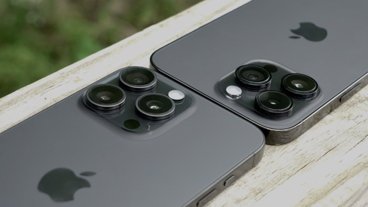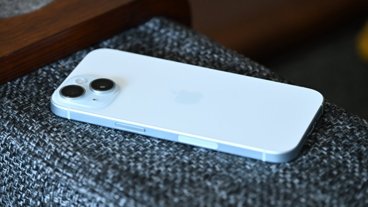Google VP Andy Rubin says Android 'openness' hasn't changed
Last week, Bloomberg BusinessWeek reported that Google had begun to restrict its partners in order to deal with the growing issue of fragmentation on the Android platform.
Rubin, who is Google's vice president of engineering and a former Apple engineer, hinted that the news was merely a method of spreading 'fear, uncertainty and doubt' by titling the blog post "I think I’m having a Gene Amdahl moment," a reference to the former IBM employee who coined the phrase.
"Recently, there’s been a lot of misinformation in the press about Android and Google’s role in supporting the ecosystem. I’m writing in the spirit of transparency and in an attempt to set the record straight," Rubin wrote.
Throughout impressive growth over the past two and a half years, Google has "remained committed to fostering the development of an open platform for the mobile industry and beyond, " said Rubin.
He asserted that device makers are still free to modify Android to customize "any range of features" for their devices, while adding that manufacturers looking to market their devices as Android-compatible or include Google applications must conform with "some basic compatibility requirements."
According to Rubin, Google's "anti-fragmentation" program has been in place since Android 1.0 and remains a priority for the company. Each of the Open Handset Alliance members agreed not to fragment Android when it was first announced, he noted.
A recent survey from Baird Research indicated that 87 percent of Android developers view fragmentation as a problem for the Android platform. Developers expressed concerns over both device fragmentation and store fragmentation.
"Our approach remains unchanged: there are no lock-downs or restrictions against customizing UIs," he continued. "There are not, and never have been, any efforts to standardize the platform on any single chipset architecture."
Responding to claims that Google's closing of the Android 3.0 Honeycomb source code meant the platform was no longer open source, Rubin promised that the code would be released once the Android team finished bringing features from the tablet-focused Honeycomb to smartphones.
"This temporary delay does not represent a change in strategy. We remain firmly committed to providing Android as an open source platform across many device types," he said.
Apple and Google are locked in a fierce battle over control of both the smartphone and tablet market. Last October, Nielsen revealed that Android had overtaken iOS as the top-selling smartphone platform. According to one analytics firm, however, spectacular growth by the iPad has resulted in a iOS having a larger share of web visits than Android when all devices are taken into consideration.
 Josh Ong
Josh Ong










 Marko Zivkovic
Marko Zivkovic
 Amber Neely
Amber Neely
 Christine McKee
Christine McKee
 Malcolm Owen
Malcolm Owen
 Mike Wuerthele and Malcolm Owen
Mike Wuerthele and Malcolm Owen

 William Gallagher
William Gallagher








